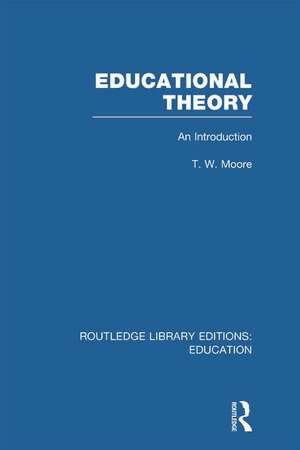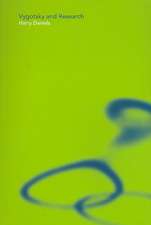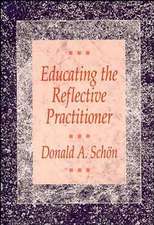Educational Theory (RLE Edu K): An Introduction: Routledge Library Editions: Education
Autor Terence Mooreen Limba Engleză Hardback – 8 dec 2011
Din seria Routledge Library Editions: Education
-
 Preț: 379.48 lei
Preț: 379.48 lei -
 Preț: 400.93 lei
Preț: 400.93 lei -
 Preț: 377.09 lei
Preț: 377.09 lei -
 Preț: 379.00 lei
Preț: 379.00 lei -
 Preț: 401.28 lei
Preț: 401.28 lei - 8%
 Preț: 375.32 lei
Preț: 375.32 lei - 18%
 Preț: 1298.07 lei
Preț: 1298.07 lei - 34%
 Preț: 819.90 lei
Preț: 819.90 lei - 26%
 Preț: 247.40 lei
Preț: 247.40 lei - 34%
 Preț: 819.90 lei
Preț: 819.90 lei - 34%
 Preț: 819.90 lei
Preț: 819.90 lei - 34%
 Preț: 819.90 lei
Preț: 819.90 lei - 34%
 Preț: 991.00 lei
Preț: 991.00 lei - 34%
 Preț: 822.76 lei
Preț: 822.76 lei - 34%
 Preț: 821.53 lei
Preț: 821.53 lei - 26%
 Preț: 259.98 lei
Preț: 259.98 lei - 34%
 Preț: 764.20 lei
Preț: 764.20 lei - 34%
 Preț: 819.90 lei
Preț: 819.90 lei - 34%
 Preț: 761.85 lei
Preț: 761.85 lei - 34%
 Preț: 986.91 lei
Preț: 986.91 lei - 55%
 Preț: 541.50 lei
Preț: 541.50 lei - 34%
 Preț: 762.01 lei
Preț: 762.01 lei - 25%
 Preț: 261.37 lei
Preț: 261.37 lei - 34%
 Preț: 764.20 lei
Preț: 764.20 lei - 34%
 Preț: 762.97 lei
Preț: 762.97 lei - 34%
 Preț: 819.90 lei
Preț: 819.90 lei - 34%
 Preț: 986.91 lei
Preț: 986.91 lei - 34%
 Preț: 821.53 lei
Preț: 821.53 lei - 34%
 Preț: 819.90 lei
Preț: 819.90 lei - 34%
 Preț: 819.90 lei
Preț: 819.90 lei - 34%
 Preț: 821.13 lei
Preț: 821.13 lei - 34%
 Preț: 2100.27 lei
Preț: 2100.27 lei - 34%
 Preț: 819.90 lei
Preț: 819.90 lei - 34%
 Preț: 819.90 lei
Preț: 819.90 lei - 34%
 Preț: 764.20 lei
Preț: 764.20 lei - 34%
 Preț: 819.90 lei
Preț: 819.90 lei - 34%
 Preț: 986.91 lei
Preț: 986.91 lei - 34%
 Preț: 764.20 lei
Preț: 764.20 lei - 34%
 Preț: 819.90 lei
Preț: 819.90 lei - 34%
 Preț: 4048.76 lei
Preț: 4048.76 lei - 34%
 Preț: 736.38 lei
Preț: 736.38 lei - 34%
 Preț: 819.90 lei
Preț: 819.90 lei - 34%
 Preț: 821.53 lei
Preț: 821.53 lei - 34%
 Preț: 819.90 lei
Preț: 819.90 lei - 34%
 Preț: 819.90 lei
Preț: 819.90 lei - 34%
 Preț: 819.90 lei
Preț: 819.90 lei - 34%
 Preț: 819.90 lei
Preț: 819.90 lei - 34%
 Preț: 819.90 lei
Preț: 819.90 lei
Preț: 762.01 lei
Preț vechi: 1153.30 lei
-34% Nou
Puncte Express: 1143
Preț estimativ în valută:
145.83€ • 150.65$ • 121.37£
145.83€ • 150.65$ • 121.37£
Carte tipărită la comandă
Livrare economică 25 martie-08 aprilie
Preluare comenzi: 021 569.72.76
Specificații
ISBN-13: 9780415698191
ISBN-10: 0415698197
Pagini: 114
Dimensiuni: 156 x 234 mm
Greutate: 0.33 kg
Ediția:1
Editura: Taylor & Francis
Colecția Routledge
Seria Routledge Library Editions: Education
Locul publicării:Oxford, United Kingdom
ISBN-10: 0415698197
Pagini: 114
Dimensiuni: 156 x 234 mm
Greutate: 0.33 kg
Ediția:1
Editura: Taylor & Francis
Colecția Routledge
Seria Routledge Library Editions: Education
Locul publicării:Oxford, United Kingdom
Public țintă
General, Postgraduate, Professional, and UndergraduateCuprins
Acknowledgements. 1. Educational Theory. 2. The Structure of Educational Theory. 3. Historical Theories of Education. 4. A Critique of the Historical Theories. 5. The Groundwork of Educational Theory. 6. A Contemporary Model. Further Reading. Bibliography.
Descriere
This book comes strongly to the defence of educational theory and shows that it has a structure and integrity of its own. The author argues that the validity of educational theory may best be judged in terms of the various assumptions made in it. His argument is illustrated by a review and critique of some particularly influential theories of education: those of Plato, Rousseau, James Mill and John Dewey. He stresses the need for an on-going, contemporary, general theory of education and examines the ways in which the disciplines of psychology, sociology and philosophy can contribute to a general theory of this kind.













